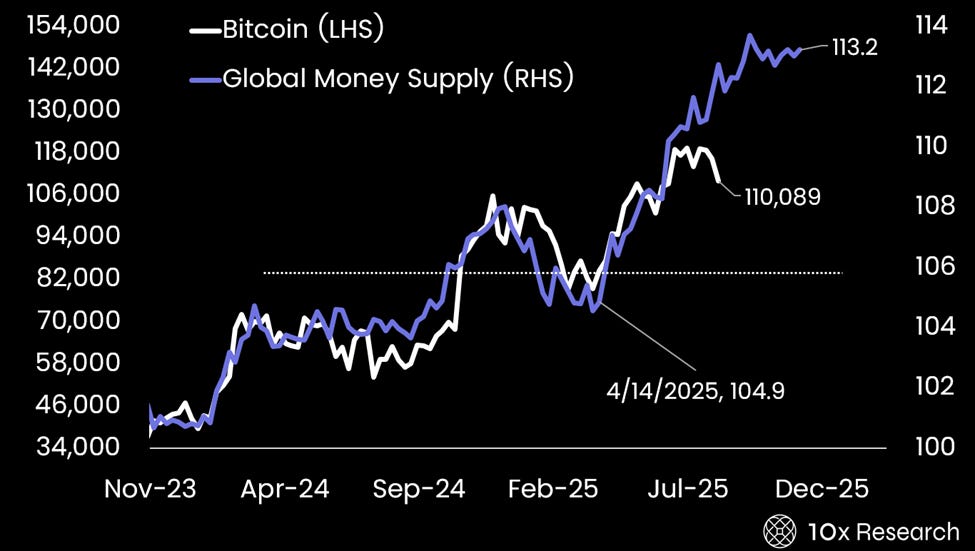The Famous Bitcoin Liquidity Signal Is Failing—Here’s the Replacement
Actionable Market Insights
Why this report matters
Bitcoin has pushed to new all-time highs in 2024 and 2025, but the old playbooks of cycle timing and neat liquidity overlays no longer seem to work. Liquidity continued to rise for months after Bitcoin peaked in 2021—yet prices collapsed, reminding us that supply-side models, such as stock-to-flow, were fatally flawed. This time, the divergence is even sharper: liquidity correlations have broken down just as Bitcoin was expected to surge.
Bitcoin (LHS) vs. Global Money Supply [Liquidity] (RHS, $ trillions)
Main argument
Many traders still rely on broad liquidity and cycle analysis to forecast Bitcoin’s price. But, as in November 2021, they are learning the hard way that the framework for analyzing Bitcoin profitably has shifted temporarily. Some may recall the stock-to-flow model, which predicted $100,000 in the 2020–2021 cycle—only to collapse so severely that it is no longer mentioned today. Focusing solely on supply as that model does, without adequately accounting for demand, isn’t just flawed—it’s misguided. Refer to our stock-to-flow report from May 2024, where we projected that Bitcoin would consolidate around $70,000 until the November election.
When we first called the Bitcoin cycle low on October 28, 2022, widespread skepticism prevailed. Yet in our follow-up report on December 9, 2022, we outlined a strategy that effectively allowed investors to buy Bitcoin at $10,650—and at the same time highlighted Solana at $13.70, just before those exploded higher.
Based on our cycle analysis, we projected in October 2022 that Bitcoin would rally to $63,160 into the 2024 halving date (final price $63,491), a target that was effectively met. By July 6, 2023, we had projected a cycle high of $125,000 by year-end 2024, based on an alternative model. While that level was reached with an eight-month lag, the accuracy of these calls demonstrates how cycle analysis has consistently mapped Bitcoin’s major moves. The key question now is whether that shift is unfolding in real time, or whether an entirely new driver has emerged.



